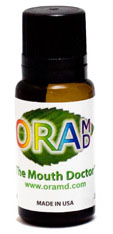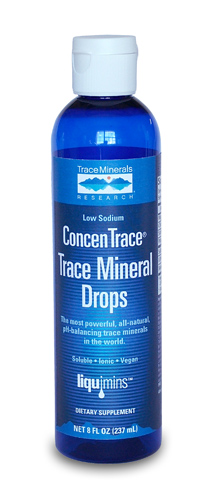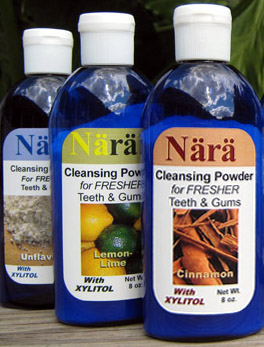
The OraMedia site is based, primarily, on the vast collection of work produced by Dr. Robert O. Nara on the prevention and reversal of tooth decay and gum disease. The purpose of this site is to continue in raising public awareness that the condition of having bad teeth, gum inflammation, bleeding and pain are not inevitable, but quite easily avoidable when the cause and cure of the disease is understood by the individual - and the teeth properly cared for.
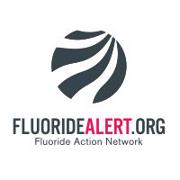
Home Dentistry: Dental Medicine in Your Kitchen
By
Dr. Robert Nara
Mother Earth News
- January/February 1980
Teach
yourself a little about home dentistry with this excerpt from Dr.
Robert Nara's book, 'How To Become Dentally Self-Sufficient.'
Dr.
Nara's book "How to Become Dentally Self-Sufficient" offers
insight into dental care and information on administering home
dentistry.
Two
substances have been handed down for generations as folk medicines:
baking soda and common table salt. Claims for the properties of these
familiar chemicals range from the ridiculous to the sublime: They've
probably been "known" to cure almost anything, at one time or another.
In your oral health medicine cabinet, these two can be used for
hygienic purposes as well as home dentistry first aid. The first use,
hygiene, simply has both soda and salt doubling as a dentifrice.
As a youngster, you probably experimented at one time or another by
mixing baking soda and vinegar. Remember the reaction? The solution
bubbled and boiled and fizzed: Something was happening. Apparently
vinegar and soda are not overly compatible. Why is that? Well ...
vinegar is acidic, and soda is alkaline. Acid and alkali are at
separate ends of a scale ... they truly "don't get along".
Part of the disease process of odontosis takes place when the germs
ingest sugar and begin excreting acid. It is this acid that begins the
insult to tooth enamel which will become, eventually, a cavity.
If you use soda as a dentifrice, you will no doubt create that
"soda-vinegar" reaction ... except on a scale so small as to escape
observation. In this, there aren't any research figures we can supply
... no weighty documentation is available. It is, instead, plain common
sense. Soda and acid are not compatible. Soda won't hurt your teeth and
gums ... it won't hurt you if you swallow a teaspoonful (makes you
burp) ... but it isn't going to do acid a whole lot of good when it
comes in contact with it. Conversely, acid will hurt you in the teeth
and gums. . . "it'll rot yer teeth. "
Salt is sodium chloride, which is a significant element in the physical
makeup of the human body. The "saline solution" used in many medical
applications is generally about point nine percent (0.9%) salt in
water. It is used, for example, as a base solution for injections: It
balances the osmotic action of the body fluids so the injection does
not disturb the normal balance of water inside the body's cells at the
area of the injection.
Saline solution (salt water) in any concentration where the salt can be tasted will be a hypertonic solution: It will draw water from the cells of tissue bathed in it. A hypertonic condition in the mouth will instantly and automatically cause the salivary glands to go into overtime production. This is something to remember if you are frequently in places where water is not available for "normal" tooth brushing. A dry mixture of soda and salt is not inconvenient to take along on a camping trip, for example. Using this "dentifrice" without water is easy: The mouth's water fountains will provide more than enough.
This
capacity of salt—to act as a hypertonic and draw water (fluids) from
tissues—should be kept in mind for another reason: When teeth "act up"
and pain sets in; there is often (perhaps usually) a buildup of fluids
in the area of the affected tooth. Wouldn't it make sense to use a
"medicine" which helped reduce this fluid pressure?
Hand me the salt, please. I'm getting a toothache...
10 Vital Tips for Keeping Your Teeth Healthy for Life
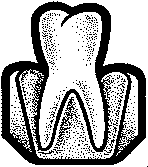
2. Select a good dentifrice and stick with it. You don’t need much and when the mouth fills with foam, most people will spit it out and consider themselves finished brushing. There are many, many toothpastes and powders on the market all touting claims from being the best whitener to being the most natural. Try a powder with a good mixture of baking soda and flavoring - you’ll never go back to pastes! Fluoride? You won’t need it if you keep to a strict hygiene routine. Hydrogen peroxide? Good old baking soda is proven to be a better anti-microbial without the risk. You will be surprised how clean your teeth feel after using a baking soda-based powder. (Make your own.)
Want to add an extra punch to your brushing? Rinse with a 'tarter dissolver' mix before you brush. Tarter is the hardened plaque which forms on the teeth and under the gum line which normally has to be scraped away. OraTec makes a good one called, 'TheraSol Tarter Dissolver'.
3. Brush your tongue or use a tongue scraper. Why do a great job on your teeth only to have them come in immediate contact with the same disease-related microbes living on the surface of your tongue? As an added benefit, your breath will be MUCH better!
4. Floss at least once a day. Flossing further cleans and removes plaque where your toothbrush cannot reach.
5. Learn how to irrigate the teeth and gums and do it daily. Oral Irrigation serves several purposes; it helps to remove food particles trapped below the gum line, using the right antimicrobial fluid in your irrigator can help remove the ‘biofilm’ which harbors bacteria dangerous to your oral health. Irrigation also massages the gums resulting in increased circulation.
6. Irrigate deep pockets with a cannula tip and good antimicrobial solution. This measure is one of the best things an individual can do, on his or her own, to assist in stopping decay where pockets have formed between the tooth and gum. Before you buy an oral irrigator, make sure you select an irrigator such as the Via Jet, which can accommodate the tiny cannula tips. Not all do. When irrigating a deep pocket, the cannula tip is small enough to deliver the antimicrobial solution deep, where the regular irrigator tip cannot reach. Ask your dentist for help in this. If you have the right dentist, he’ll be supportive and informative in your personal hygiene efforts.
7. See your dental professionals regularly, but choose them wisely. There are good offices and bad ones and you need to seek a good hygienist as well as a D.D.S. Make sure your hygienist is allowed a good 45 minutes to an hour - enough time to properly work on your teeth. Listen to your hygienist when she tells you about a problem area and don’t be afraid to ask questions. Be on time for your appointments. Talk to your dentist about ‘periodontal anti-infective therapy’ involving home irrigation and antimicrobial solutions. This is cutting edge science and a little effort on your part might keep you away from the ‘specialist.’ Don’t be afraid to ask questions. If your professional won’t take the time to answer you in a way you can understand or gets offended by your questions, it may be time to move on. See: 'Beyond the Basics: Is Your Dentist Taking Shortcuts?'
8. White teeth do not necessarily mean healthy teeth. While your biggest concern right now may be your smile, make sure that smile will be there, in good shape, years from now. Tooth whitening is tremendously popular today and many companies are catering to the market. While tooth whiteners remove staining, to some degree, they do not necessarily do the cleaning job required by your other efforts.
9. Nutrition is half the battle. A demineralization and remineralization process is taking place constantly as the teeth are being bathed in healthy saliva (See article on ‘demineralization’ at www.mizar5.com/demin.htm ). The body is equipped to care for itself as long as conditions are right, and as everything else in the body requires good nutrition, the teeth and gums are no exception. Staying away from sugar is fine, but don’t forget carbohydrates; cakes, breads, chips… Vitamin C has long been known as important for healthy gums and a good colloidal mineral supplement will provide the calcium and phosphorus your teeth need. Your strong autoimmune system is one of your best defenses against poor oral health and GOOD food is your best source of essential vitamins & minerals.
10. Finally, allow the time, use the time, and be on time. These are YOUR teeth. How you care for them will determine how they will care for you down the road. Your attention to your good oral health could even save your life.
-Tom Cornwell
